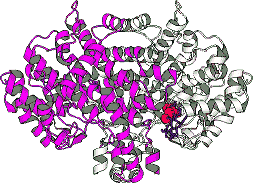 Molecular Sciences Research Group
Molecular Sciences Research Group
 Molecular Science research at Bristol encompasses an extraordinarily wide range of 'modern' Physical and Theoretical chemistry, and its extension to other disciplines. Lasers feature prominently - in fundamental studies of the photochemistry and reactivity of gas phase species, in the application of cavity enhanced spectroscopy methods for monitoring trace atmospheric species, and in diagnosing plasmas. New laser techniques permit studies of chemical reactions on water droplets, and simultaneous determination of the size and composition of individual aerosol particles, and the time dependence of such properties (topics central to an improved understanding of condensation and evaporation). The development of ultra-sensitive GC-MS techniques for monitoring trace atmospheric species illustrates another interface between advanced physical chemistry techniques and the frontiers of analytical chemistry. Computational Chemistry at Bristol also spans a very broad spectrum - from fundamentals: e.g. pioneering developments in time-dependent quantum mechanics and in electronic structure theory); to applications: notably the modelling of enzyme reactions, protein dynamics and structure; of organometallic chemistry; of local, global and planetary atmospheres, and of climate change; and materials chemistry, with particular application to disordered solids and minerals, model NMR studies of molecules at surfaces and thin film growth. This latter activity links strongly with pan-departmental experimental and modelling programmes centred on the deposition, characterisation and applications of thin film materials, e.g. diamond, diamond-like-carbon, zinc oxide, etc., grown by chemical vapour deposition and/or laser ablation methods.
Molecular Science research at Bristol encompasses an extraordinarily wide range of 'modern' Physical and Theoretical chemistry, and its extension to other disciplines. Lasers feature prominently - in fundamental studies of the photochemistry and reactivity of gas phase species, in the application of cavity enhanced spectroscopy methods for monitoring trace atmospheric species, and in diagnosing plasmas. New laser techniques permit studies of chemical reactions on water droplets, and simultaneous determination of the size and composition of individual aerosol particles, and the time dependence of such properties (topics central to an improved understanding of condensation and evaporation). The development of ultra-sensitive GC-MS techniques for monitoring trace atmospheric species illustrates another interface between advanced physical chemistry techniques and the frontiers of analytical chemistry. Computational Chemistry at Bristol also spans a very broad spectrum - from fundamentals: e.g. pioneering developments in time-dependent quantum mechanics and in electronic structure theory); to applications: notably the modelling of enzyme reactions, protein dynamics and structure; of organometallic chemistry; of local, global and planetary atmospheres, and of climate change; and materials chemistry, with particular application to disordered solids and minerals, model NMR studies of molecules at surfaces and thin film growth. This latter activity links strongly with pan-departmental experimental and modelling programmes centred on the deposition, characterisation and applications of thin film materials, e.g. diamond, diamond-like-carbon, zinc oxide, etc., grown by chemical vapour deposition and/or laser ablation methods.